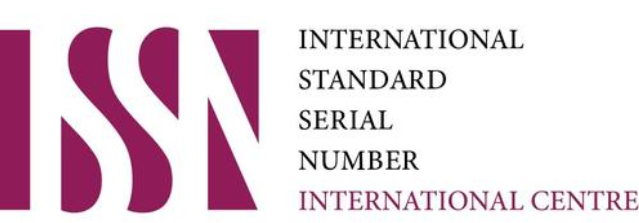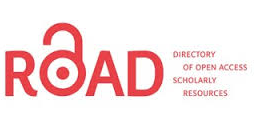Association of Maternal Education and Socioeconomic Status with the Management of Febrile Children Under 10 Years of Age in Lahore
Maternal Management of Fever in Children
DOI:
https://doi.org/10.70384/jlmdc.v2i01.69Keywords:
Fever, Antipyretics, Parents, Knowledge, BehaviorAbstract
Background: Parents frequently become anxious when dealing with febrile children. Inadequate maternal education and poor awareness can lead to improper management of febrile children which can lead to the prescription of inappropriate medication and other adversities like seizures, convulsions, brain damage, and even death.
Objective: The aim of this study is to assess the association of maternal education and socioeconomic status with their knowledge, attitudes, and practice in managing febrile children under 10 years of age in Lahore.
Methods: This was a descriptive cross-sectional study held in January and February 2024 conducted amongst parents of children under 10 years of age present at CMH Lahore and The Children's Hospital Lahore.
Results: Our study found 82.2% of parents considered fever to be hazardous to health. 37% defined fever at 38°C. 35.2% of the total participants gave antipyretics as their initial step to manage febrile children. 29.5% of the mothers with complete university education used digital thermometers. Fear of adverse outcomes included dehydration (14.2%), brain damage (9.3%), seizures (32.8%), death (3.6%) while 23.5% considered all of these to be caused by fever.
Conclusion: Maternal education is positively associated with both the use of antipyretics and knowledge about fever. Educated Mothers are more likely to use thermometers and to alternate between different antipyretics. The fear of unfavorable outcomes is common with a belief that fever could lead to adverse effects such as dehydration, confusion, lethargy, seizures, and brain damage.
References
1. Mackowiak PA, Chervenak FA, Grünebaum A. Defining Fever. Open Forum Infect Dis. 2021;8(6):ofab161. doi: 10.1093/ofid/ofab161. DOI: https://doi.org/10.1093/ofid/ofab161
2. Balli S, Shumway KR, Sharan S. Physiology, Fever. In: StatPearls [Internet]. Treasure Island (FL): StatPearls Publishing; 2024. Available from: https://www.ncbi.nlm.nih.gov/books/NBK562334/
3. Ng HL, Li H, Jin X, Wong CL. Parental knowledge, attitudes, and practices towards childhood fever among South-East and East Asian parents: A literature review. PLoS One. 2023;18(9):e0290172. doi: 10.1371/journal.pone.0290172. DOI: https://doi.org/10.1371/journal.pone.0290172
4. Chiappini E, Cangelosi AM, Becherucci P, Pierattelli M, Galli L, de Martino M. Knowledge, attitudes and misconceptions of Italian healthcare professionals regarding fever management in children. BMC Pediatr. 2018;18(1):194. doi: 10.1186/s12887-018- 1173-0. DOI: https://doi.org/10.1186/s12887-018-1173-0
5. Hussain SM, Al-Wutayd O, Aldosary AH, AlNafeesah A, AIE'ed A, Alyahya MS et al. Knowledge, Attitude, and Practice in Management of Childhood Fever Among Saudi Parents. Glob Pediatr Health. 2020;7. doi:10.1177/2333794X20931613. DOI: https://doi.org/10.1177/2333794X20931613
6. Sakr F, Toufaili Z, Akiki Z, Akel M, Malaeb D, Dabbous Mmaet al. Fever among preschool-aged children: a cross-sectional study assessing Lebanese parents' knowledge, attitudes and practices regarding paediatric fever assessment and management. BMJ Open. 2022 ;12(10):e063013. doi: 10.1136/bmjopen2022-063013. DOI: https://doi.org/10.1136/bmjopen-2022-063013
7. Doan Q, Enarson P, Kissoon N, Klassen TP, Johnson DW. Rapid viral diagnosis for acute febrile respiratory illness in children in the Emergency Department. Cochrane Database Syst Rev. 2014;2014(9):CD006452. doi: 10.1002/14- 651858.CD006452. DOI: https://doi.org/10.1002/14651858.CD006452.pub4
8. Waly, E.H.; Bakry, H.M. Assessment of Egyptian Mothers' Knowledge and Domestic Management Practices of Fever in Preschool Children in Zagazig City, Sharkia Governorate. Children (Basel). 2022;9(3):349. doi: 10.3390/children9030349. DOI: https://doi.org/10.3390/children9030349
9. Tshimungu FK, Kakwaka CK, Atuba PM, Furra FK, Ilunga JF, Mujinga DT. Knowledge, Attitudes and Practices of Mothers Concerning Fever among Children under Five Years of Age in the Mabulu 2 Quarter in Kinshasa. Open Access Library Journal.
2023;10(9):1-2. doi: 10.4236/oalib.1110396. DOI: https://doi.org/10.4236/oalib.1110396
10. Shahid A, Sadiqa A, Saeed MS, Hayat R, Fatima R, Khan S. Determinants of underweight school children in Lahore. Ann King Edw Med Univ. 2 0 2 1 ; 2 7 ( 1 ) : 5 6 - 6 1 . d o i : 1 0 . 2 1 6 4 9 / - akemu.v27i1.44015.
11. Castellano VE, Talamona N, Giglio ND, Sabbaj L, Gentile Á. Knowledge and management of fever in parents of children under 5 years of age at a children's hospital. Arch Argent Pediatr. 2020;118(2):89-94. doi: 10.5546/aap.2020.eng.89. DOI: https://doi.org/10.5546/aap.2020.eng.89
12. Ray JJ, Schulman CI. Fever: suppress or let it ride? J Thorac Dis. 2015;7(12):E633-E636. doi: 10.3978/j.issn.2072-1439.2015.12.28.
13. Assimamaw NT, Gonete AT and Terefe B. Survey of knowledge, practice, and associated factors toward home management of childhood fever among parents visiting Gondar health facilities in 2022. Front P e d i a t r . 2 0 2 4 ; 1 2 : 1 1 0 0 8 2 8 . d o i : 10.3389/fped.2024.1100828.
14. Temperature measurement in paediatrics. Paediatr Child He a lth. 2000;5(5):273-284. doi: 10.1093/pch/5.5.273. DOI: https://doi.org/10.1093/pch/5.5.273
15. Factor SH, Schillinger JA, Kalter HD, Saha S, Begum H, Hossain A et al. Diagnosis and management of febrile children using the WHO/UNICEF guidelines for IMCI in Dhaka, Bangladesh. Bull World Health Organ. 2001;79(12):1096-1105.
16. Vicens-Blanes F, Miró-Bonet R, Molina-Mula J. Analysis of Nurses' and Physicians' Attitudes, Knowledge, and Perceptions toward Fever in Children: A Systematic Review with Meta-Analysis. Int J Environ Res Public Health. 2021;18(23):12444. doi: 10.3390/ijerph182312444. DOI: https://doi.org/10.3390/ijerph182312444
17. Villarejo-Rodríguez MG, Rodríguez-Martín B. Parental Approach to the Management of Childhood Fever: Differences between Health Professional and Non-Health Professional Parents. Int J Environ Res Publi c He a lth. 2019;16(20):4014. doi: 10.3390/ijerph16204014.. DOI: https://doi.org/10.3390/ijerph16204014
18. Chang LC, Liu CC, Huang MC. Parental knowledge, concerns, and management of childhood fever in Taiwan. J Nurs Res. 2013;21(4):252-260. doi: 10.1097/jnr.0000000000000007. DOI: https://doi.org/10.1097/jnr.0000000000000007
19. Samir N, Hassan MZ, Biswas MAAJ, Chowdhury F, Akhtar Z, Lingam R et al. Antibiotic Use for Febrile Illness among Under-5 Children in Bangladesh: A Nationally Representative Sample Survey. Antibiotics (Basel). 2021;10(10):1153. doi: 10.3390/antibiotics10101153. DOI: https://doi.org/10.3390/antibiotics10101153
20. Green R, Webb D, Jeena PM, Wells M, Butt N, Hangoma JM et al. Management of acute fever in children: Consensus recommendations for community and primary healthcare providers in subSaharan Africa. Afr J Emerg Med. 2021;11(2):283-
296. doi: 10.1016/j.afjem.2020.11.004. DOI: https://doi.org/10.1016/j.afjem.2020.11.004
21. Taveras EM, Durousseau S, Flores G. Parents' beliefs and practices regarding childhood fever: a study of a multiethnic and socioeconomically diverse sample of parents. Pediatr Emerg Care. 2004;20(9):579-587. doi: 10.1097/01.pec.0000139739.46591.dd. DOI: https://doi.org/10.1097/01.pec.0000139739.46591.dd
22. Sullivan JE, Farrar HC. Section on Clinical Pharmacology and Therapeutics; Committee on Drugs. Fever and antipyretic use in children. P e d i a tri c s. 2 0 11 ; 1 2 7 ( 3 ): 5 8 0 - 5 8 7 . d o i : 10.1542/peds.2010-3852.
23. Nazme NI, Jafran SS, Sultana J. Knowledge and practice of caregivers for the management of their febrile children: Bangladesh perspective. J Pediatr Neona t a l Ca r e . 2023;13(2):93-98. doi: 10.15406/jpnc.2023.13.00498. DOI: https://doi.org/10.15406/jpnc.2023.13.00498
24. Çelik T, Güzel Y. Parents' Knowledge and Management of Fever: “Parents Versus Fever!”. Turk Arch Pediatr. 2024;59(2):179-184. doi: 10.5152/TurkArchPediatr.2024.23152. DOI: https://doi.org/10.5152/TurkArchPediatr.2024.23152
25. Chaudhary P, Sharma R, Rawat S, Janmeda P. Antipyretic Medicinal Plants, Phytocompounds, and Green Nanoparticles: An Updated Review. Curr Pharm Biotechnol. 2023;24(1):23-49. doi: 10.2174/1389201023666220330005020 DOI: https://doi.org/10.2174/1389201023666220330005020
Downloads
Published
How to Cite
Issue
Section
License
Copyright (c) 2025 Aimen Binte Asif, Momnah Waheed, Qudsia Umaira Khan, Ismail Mazhar, Eman Fatima, Rohma Maqsood

This work is licensed under a Creative Commons Attribution 4.0 International License.









